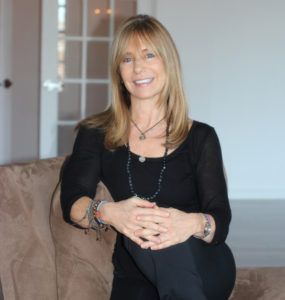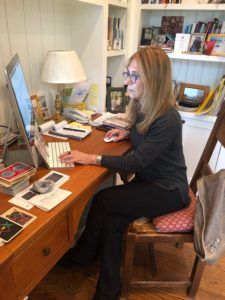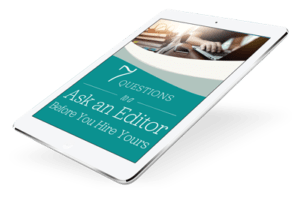After Your Finish Your First Draft, Consider Developmental Editing
 What comes next after writing a first draft? One thing you probably need is developmental editing:
What comes next after writing a first draft? One thing you probably need is developmental editing:
- Read through the first draft.
- Consider whether the overall structure works or whether it may need to be structured differently (Note: here’s where an experienced, objective editor can help)
- Move around sections or chapters to create a better flow
- Cut material that feels extraneous, breaks the flow or belongs in a different book
- Identify where you need to develop more (adding details or new information)
- Identify any additional research that needs to be done and included.
It’s often ideal to hire a developmental editor for this phase. However, you can also get feedback from beta readers, asking specific questions about structure, what’s missing, what seems extraneous, etc.
Now, Dig Deeper
Once you’ve addressed structure, where to cut and where to develop, it’s time to do that developmental work.
It depends on how rough that draft is, but if you’ve been drafting without editing (which is an effective strategy), there’s a good chance you need to go deeper.
How to go deeper?
- You may want to expand on the technical information in your book.
- Or you may want to do more research.
- Perhaps you want to add exercises, prompts, quotes or other features.
- You may be able to make your anecdotes more compelling by adding specific details.
A Case in Point
 Bring Your Book to Life® Program participant Dr. Lisa Langer has one more chapter to go on her first draft of her mindfulness book, ahead of target for the May 1 deadline when class ends.
Bring Your Book to Life® Program participant Dr. Lisa Langer has one more chapter to go on her first draft of her mindfulness book, ahead of target for the May 1 deadline when class ends.
Last week, we talked about what comes next, focusing particularly on developmental editing.
I suggested going deeper with the stories she shares from her workshops and from her work with clients. Most of the stories are composites, giving her freedom to add details and well as keep client information confidential. I suggested she contact some of the people she based stories on and ask them for more details about their experiences and their more recent results.
Dr. Langer asked an excellent question, “What’s your advice for interviewing?”
[bctt tweet=”How to Interview a Subject So You Get Compelling Stories and Information” username=”LisaTener”]
One of my main tips for interviewing is to ask open ended questions, rather than those that can be answered, “yes” or “no.” A person’s first answer is usually at the surface. Ask a couple of a questions to get at the deeper details. You can encourage the interviewee to share more details with open ended prompts:
- “Tell me more about….”
- “Because…”
- “And…”
- “What is it about x that y…?”
You can also ask them to add sensory detail:
- “How did that feel in your body?”
- “What did you see/hear/smell/feel/sense?”
How Dr. Langer Got a First Draft Done in 8 Weeks (Despite Being in the midst of selling Her House)

I also asked Dr. Langer about her experience in writing her first draft so quickly. What worked?
- Vision: Dr. Langer continued to connect with her vision and remind herself why she was writing the book, including providing support that people often craved once they completed the mindfulness course, increasing her speaking opportunities and becoming more widely known for her expertise. I encourage everyone in my classes to develop a vision statement that they can read daily to stay in touch with that vision and allow it to evolve, as well. This helps writers stick to their commitments and also to write from a place of passion.
- Scheduling: Dr. Langer scheduled specific dates and times for her writing, and kept her writing commitments.
- Using the Financial commitment for Leverage: Dr. Langer reminded herself that she made an investment in the course and that writing a first draft would make the most of that investment.
- Accountability: Dr. Langer met with her accountability partner weekly by Zoom video to assess:
- whether they met the commitments they had made
- what worked
- what did not work
- what next steps they commit to for the following week, doing more of what worked and fine tuning or problem solving for where they fell short
Such accountability meetings or calls take 10-15 minutes a week, when done properly (no excuses, no long stories, just the facts, ma’am). The check ins worked so well that she and her partner added similar check-ins by email a few additional times per week.
Read more editing tips to tighten your writing. as well as these 7 editing tips to polish your writing and bring your words to life for your readers.
Hire An Editor

Once you’ve done some self-editing, or else feel stuck or overwhelmed by editing, it’s probably time to find and hire an editor. The post I just linked to can help you determine the phases of editing and how to go about finding and hiring an editor. In addition, be sure to download my free ebook: 7 Questions to Ask An Editor Before You Hire Yours.
Your Turn
- How is your writing coming?
- What’s working for you?
- What challenges are coming up?
- Do you have any developmental editing tips to share?
Share your comments, insights and questions as a comment below.



Hi Lisa, I have two questions for you.
• How does one determine what to add in and what to leave out of their book?
• Is there a proven strategy to determine what your target audience wants to know and will find of value?
My book is an interview based book with personal stories focused on men expressing their emotions. The broader theme is the epidemic of addiction, violence, depression and suicide due to men suppressing their emotions.
Thank you
Hi Sue,
It sounds like a much-needed book!
Thanks for your questions:
1. Start with your vision and goals. What content supports that vision? What content is tangential?
2. Develop a detailed outline to help you know what you want to put in. If something is not in the outline, is there a place for it? Does it fit?
3. Think about how much is too much. For example, for a how-to or self-help book, what level of information will be helpful to the reader in meeting his or her goals, and what information may just overwhelm them? Is some information better off being saved for an online course rather than trying to cram it all into one book?
4. Ask Beta Readers, people in your target market, to provide feedback. This post shows how to find them and what questions to ask beta readers.
As to your second question. the best way to find out what your target audience wants to know is to ask them. You can send out a questionnaire to your tribe, or run a 2-3 hour focus group of 7-15 people. Another option is to recruit some beta readers to give you feedback, as mentioned above.
Hi Lisa,
I have throughly enjoyed the daily lessons on book writing .
Thank you for being generous and sharing your experience and expertise.
I am going to write a book about the anxiety that I have experienced in my lifetime, with hope that some will find encouragement from anxiety that they have endured. I have many stories from both childhood and adult life.
How does one discern if they should actually write two books, instead of trying to cram everything into one book?
Thank you,
Don Womble
Hi Don,
I’m so glad you’re enjoying the book writing lessons in the Inspired Author Support Kit.
It sounds like your book could help many people. There are several ways to look at the question of content and number of books.
One way, is to know that you don’t have to “cram” everything in your books. So, for instance, maybe take the most powerful experiences and put them in the book, while skipping swathes of your life that are not as relevant or may not be as powerful.
The second way is that if you do have lots of material that you feel is relevant, see if there is a natural way to break it up. Can you tell me a bit more about the two possible books? For example, is one childhood and one adulthood? Or are you choosing between a book that has memoir at the beginning and self-help at the end, vs. a memoir and a self-help book? Once I get a sense of the two possibilities I may be able to help you more specifically.
Lisa,
Thank you very much for your reply. The two books that I could see writing would be as you have stated: A book about childhood and then a book about adulthood. My first choice has been to write a book that contains both childhood and adulthood. I have many memoirs for both of these. My hesitation for writing a book Like this is that the book could confuse my audience. Either way that I write I am considering the book to be memoir and self help.
My first question is, what would you consider to be the best direction regarding what I have just said?
My second question is, would it be appropriate to have one chapter that relates to the spiritual aspect of anxiety? I do not want to narrow my audience with this type of a chapter, however I feel like the spiritual component of anxiety can bring many people to personal peace.
Thank you for considering these questions.
hi Don,
You can write a book that contains both childhood and adulthood, but it would need to be cohesive about theme (i.e. not just a birth to now summary). Since you have this theme about anxiety, I think you might just decide on the different lessons or tools you want to share with readers, make each of those the chapters and then start each chapter with one story/scene about how that played out in your life, something engaging that leads us in to the lesson or tool and the exercise(s) you share. Does that make sense? Sometimes writing a memoir is one big experiment. Try it this way, see if it works. If not, try something else. It’s always ideal time-wise when you can get clarity up front and I encourage that, but then there is also the aspect of surrendering control. I think a chapter on the spiritual component sounds powerful.
Lisa, you have cleared up some really foggy spots that were blocking me from moving forward. I will take this information and formulate my direction. One more thing, you have been very encouraging with the time that you have taken to give me some initial guidance.
Hi Don,
Thank you. It’s my pleasure. Consider this blog a place you can always come with your questions!
I have written a coming of age, YA fantasy book that is 107,000 words long. Some may think that my book fits more with middle-grade except for the length of course. I have an important decision to make. I could make a trilogy but would then need to know an optimum length. A middle-grade length would max out at 50,000. Suppose, however, the manuscript fits more with an age level of 12+. Would a lower length of 50,000 words work? Yes, I am trying to straddle the fence on this one. The character is a prince. In the beginning, he would be around 12-13. In the end, he takes a queen and becomes king.
Hi Pamela. Congratulations on writing your book. I am going to ask a Children’s book expert weigh in on this and be back in touch with the answer.
Dear Pamela. My name is Judy Gitenstein and I’ve been a middle-grade and YA book editor for many years. You’ve asked an excellent question. You’re right—length is an important factor in determining whether a book should be middle grade or YA, but it’s not the only factor to consider. Age of the main character, complexity of the plot, and the narrator’s voice all figure in. You mention that this is a coming of age book and that the main character is 12-13 in the beginning of the story. That does sound like a young YA to me but I am only guessing because I don’t know what the story is about. I also don’t know how much of the story covers the main character as an adult. Often it’s a matter of intuition, which means you know best! If you feel the story falls naturally into three sections, then make it a trilogy and call it middle grade. If you’re not sure, then keep it as one book. My advice is to keep writing and your book will find its audience, younger or older. Keep in mind that Harry Potter books are very, long and Scholastic markets them as middle grade books, not YA. As I said, length is a factor but it’s not the only one. Here’s a tip: Start reading the manuscript out loud. As you hear the rhythm of the story, what does it sound like to you: YA or middle grade? That’s your answer!
Hi Pamela,
I’ve just heard back from my colleague, Judy Gitenstein, who is my go-to expert for anything children’s book related, having worked in the upper echelons of children’s book publishing for decades. Judy has held senior positions at Delacorte Press/Dell Publishing, Random House, Bantam Books and Avon Books.
She will answer your question later today…stay tuned!